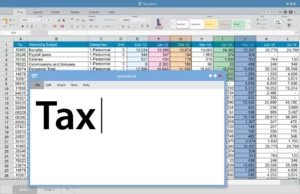Table of Contents
Key Takeaways:
- The Certified Management Accountant (CMA) certification is globally recognized and equips professionals with expertise in financial planning, cost management, strategic decision-making, and risk analysis.
- CMAs work across diverse industries such as finance, manufacturing, healthcare, consulting, and government, enjoying strong demand and competitive salaries both in India and internationally.
- Career growth for CMAs is rapid, offering a clear pathway from entry-level accounting roles to senior leadership positions such as CFO and Corporate Controller.
- The CMA credential opens doors to global opportunities, including positions in multinational corporations and expanding financial hubs worldwide.
- Continuous professional development and specialization in areas like data analytics, treasury, and strategic finance enhance job prospects and career longevity.
What is the CMA Certification and Why Does it Matter?
The CMA certification is a globally respected credential awarded by authorities like the Institute of Cost Accountants of India (ICMAI) and the Institute of Management Accountants (IMA). It validates skills in managerial accounting, strategic financial management, budgeting, and risk assessment. Unlike traditional accounting qualifications, CMA specifically prepares professionals to support business strategies, optimize operational costs, and influence decision-making at leadership levels.
Holding a CMA signals to employers that you can enhance organizational performance through financial insight, making you a crucial asset across industries from manufacturing to healthcare, public sector to consulting.
Also read: CMA USA- Syllabus, Duration, Eligibility, Fees
Top 10 Job Roles for CMAs
1. Cost Accountant
Description: Cost accountants analyze and control business expenses to optimize profitability. They design cost systems, monitor budgets, and evaluate production efficiency.
Responsibilities:
-
Develop cost standards for materials and labor
-
Implement cost control systems
-
Analyze production costs and recommend improvements
-
Monitor inventory and prepare cost reports
2. Financial Analyst
Description: Financial analysts evaluate market trends and company data to support investment decisions and financial planning. Their forecasts guide executive strategies.
Responsibilities:
-
Analyze financial data and market conditions
-
Prepare reports and investment recommendations
-
Assist with capital budgeting and forecasting
-
Monitor company performance metrics
Enroll in Entri’s USA CMA course now!
3. Management Accountant
Description: Management accountants focus on budgeting, financial reporting, and strategic planning to help companies meet objectives. They lead performance analysis and risk management.
Responsibilities:
-
Prepare budgets aligned with corporate strategy
-
Monitor costs and conduct variance analyses
-
Provide insights for pricing and investment decisions
-
Oversee compliance and internal controls
Unlock a career in ACCA with Entri. Enrol now!!
4. Internal Auditor
Description: Internal auditors assess financial records and operations for accuracy, efficiency, and compliance with regulation to prevent fraud and errors.
Responsibilities:
-
Conduct audits of financial processes
-
Evaluate internal controls and risk factors
-
Recommend process improvements
-
Ensure compliance with standards and regulations
5. Finance Manager
Description: Finance managers oversee financial planning, reporting, and risk management across the organization, coordinating with other departments and stakeholders.
Responsibilities:
-
Manage budgeting and financial reporting
-
Lead financial risk assessments
-
Oversee investment planning and capital allocation
-
Coordinate audits and regulatory compliance
6. Corporate Controller
Description: Controllers supervise all accounting functions, ensuring accurate financial reporting and adherence to regulatory requirements. They manage accounting teams and processes.
Responsibilities:
-
Oversee preparation of financial statements
-
Coordinate external audits
-
Implement financial controls and policies
-
Manage accounting staff performance
7. Financial Risk Manager
Description: Financial risk managers identify, assess, and mitigate financial threats to safeguard company assets and ensure stability.
Responsibilities:
-
Analyze market, credit, and operational risks
-
Develop risk management strategies
-
Monitor risk exposure and compliance
-
Train staff on risk awareness policies
8. Budget Analyst
Description: Budget analysts develop, manage, and monitor organizational budgets to ensure financial resources are allocated efficiently.
Responsibilities:
-
Prepare budget proposals and forecasts
-
Track spending and report variances
-
Advise departments on budget adherence
-
Evaluate financial impacts of operational plans
9. Treasury Analyst
Description: Treasury analysts manage an organization’s liquidity, investments, and financial risk, ensuring funds availability for operations and growth.
Responsibilities:
-
Monitor cash flow and liquidity status
-
Manage banking and investment relationships
-
Forecast financial needs and funding requirements
-
Control financial risk related to currency and interest rates
Achieve your dream of becoming a USA CMA now with Entri!
10. Strategic Finance Analyst
Description: These analysts provide financial insights to support long-term business growth, mergers, acquisitions, and strategic projects.
Responsibilities:
-
Conduct financial modeling and scenario analysis
-
Evaluate project viability and ROI
-
Support strategic decision-making teams
-
Prepare reports for executive leadership
Start Your CMA Journey Today
Kickstart your CMA preparation with expert mentorship, structured learning, and a clear roadmap from basics to exam readiness.
Know MoreIndustries Hiring CMAs
-
Finance & Banking: Roles in portfolio management, risk assessment, and financial advisory.
-
Manufacturing: Cost reduction, budgeting, and process efficiency.
-
Consulting: Strategic advisory and financial restructuring for clients.
-
Healthcare: Financial planning, hospital budgeting, and reporting.
-
Government & Public Sector: Regulatory compliance, finance management, and policy implementation.
-
Technology: Financial leadership in fintech and SaaS companies.
Salary Expectations for CMAs in India and Globally
CMA certification significantly boosts earning potential. In India, entry-level CMAs can expect ₹5–7 lakh annually, while senior roles command ₹15 lakh and above. Globally, CMAs earn competitive salaries with mid-career professionals in the U.S. earning over $130,000 per year.
| CMA Job Role | Average Salary Range in India (₹ LPA) | Approximate Global Salary (USD Annual) |
|---|---|---|
| Cost Accountant | 5 – 8 | 55,000 – 80,000 |
| Financial Analyst | 6 – 10 | 60,000 – 85,000 |
| Management Accountant | 8 – 12 | 75,000 – 110,000 |
| Internal Auditor | 7 – 11 | 65,000 – 90,000 |
| Finance Manager | 12 – 20 | 90,000 – 140,000 |
| Corporate Controller | 15 – 25 | 110,000 – 180,000 |
| Financial Risk Manager | 14 – 22 | 100,000 – 160,000 |
| Budget Analyst | 7 – 12 | 65,000 – 95,000 |
| Treasury Analyst | 8 – 14 | 70,000 – 105,000 |
| Strategic Finance Analyst | 12 – 24 | 100,000 – 170,000 |
Notes:
-
Salaries depend on experience, location (metros pay more), sector (MNCs/consulting pay higher), and specific skill sets.
-
Entry-level CMA roles generally start in the ₹5–10 LPA range; senior and leadership roles can go beyond ₹25 LPA in India, with global salaries proportionately higher.
-
Metro cities like Bangalore, Mumbai, and Gurgaon tend to offer the highest salaries due to corporate and MNC hubs.
Secure a job among the Big4 with Entri’s PwC Edge course!
Career Growth and Advancement for CMAs
The career path for Certified Management Accountants (CMAs) is marked by rapid progression and expanding responsibilities. Starting with entry-level roles such as cost accountant or financial analyst, CMAs can advance to senior managerial positions, including finance manager, corporate controller, and ultimately, executive roles like Chief Financial Officer (CFO). The specialization in management accounting and strategic financial planning positions CMAs uniquely to influence key business decisions and drive organizational growth.
Scope of the Field:
-
Diversified Opportunities: CMAs can work across multiple sectors including manufacturing, banking, healthcare, technology, consulting, and government. This diversity provides stability and numerous options for career shifts or specialization.
-
Leadership Roles: As CMAs gain experience, they are often tapped for leadership roles overseeing financial planning, budgeting, risk management, and business strategy to support sustainable growth.
-
Specialization and Skill Development: CMAs can specialize in areas like financial risk management, treasury management, forensic accounting, or corporate finance, enhancing their marketability and earning potential.
-
Consulting and Entrepreneurship: Experienced CMAs may branch into financial consulting, advisory roles, or start their own firms to provide expert financial management services.
-
Continuous Professional Development: The dynamic nature of finance and technology demands that CMAs continue upgrading their skills through certifications, workshops, and courses, ensuring their relevance and adaptability in an evolving marketplace.
Unlock your USA CMA career now with Entri’s comprehensive course!
With increasing digitization, CMAs who develop expertise in data analytics, artificial intelligence, and financial software will have a competitive edge.
You might also like: CMA USA vs CMA India: Which Certification Should You Choose?
International Opportunities for CMAs
The CMA certification is globally recognized and valued by companies across continents, offering lucrative career opportunities for professionals seeking to work abroad or in multinational organizations. This opens doors to diverse markets, cultures, and advanced financial practices, enriching professional experience.
Top International Companies Hiring CMAs:
-
Deloitte (Global consultancy with strong financial advisory divisions)
-
PricewaterhouseCoopers (PwC) (Audit, consulting, and tax services worldwide)
-
KPMG (Financial auditing, risk advisory, and consulting)
-
Ernst & Young (EY) (Global professional services including finance and accounting)
-
Accenture (Management consulting and financial services global leader)
-
IBM (Finance and strategy roles within technology and consulting)
-
General Electric (GE) (Financial management roles within industrial and healthcare divisions)
-
Amazon (Corporate finance, treasury, and strategic planning)
-
Nestlé (Finance and accounting leadership in global FMCG)
-
Siemens (Global manufacturing and infrastructure with finance roles)
Kickstart your accounting career with Entri’s Practical Accounting course!
Additional International Markets:
-
Middle East (UAE, Saudi Arabia, Qatar) offers high demand with attractive tax-free salaries
-
Southeast Asia (Singapore, Malaysia) has growing finance hubs welcoming CMA professionals
-
North America (USA, Canada) provides advanced roles but may require additional local certifications
Benefits of International CMA Careers:
-
Exposure to diverse business environments and regulations
-
Higher salary packages and comprehensive benefits
-
Opportunities for career acceleration in multinational corporations
-
Networking with global finance and management experts
For CMAs looking to gain a global edge, combining CMA with local accreditations or language skills can significantly enhance employability and career success.
Start Your CMA Journey Today
Kickstart your CMA preparation with expert mentorship, structured learning, and a clear roadmap from basics to exam readiness.
Know MoreEntri’s CMA USA Course: Structured Success for Aspiring Management Accountants
For those aiming to build a global career in management accounting, Entri offers a comprehensive CMA USA course in collaboration with Zivet. The program is designed to meet the highest standards in professional education, balancing theoretical knowledge and practical skills that empower candidates for success in the global finance world.
Course Highlights
The CMA USA course by Entri features 400 hours of flexible online learning, combining live and recorded classes to accommodate a range of schedules. Learners benefit from expert mentorship, live doubt-clearing sessions, and AI-integrated study methods, enhancing the overall experience and comprehension.
- Comprehensive Curriculum: Covers cost management, financial analysis, strategic planning, performance management, risk management, and more, mapped closely to the dual-part CMA exam structure.
- Skill-Building: Students gain hands-on expertise in budgeting, financial forecasting, corporate finance, data analysis (including Excel and ERP tools), leadership, and professional ethics.
- Outcome-Focused: The course prepares graduates for roles such as management accountant, cost accountant, finance controller, treasurer, and CFO.
Conclusion
The CMA certification opens exciting and diverse career opportunities across industries with rewarding salaries and growth potential. By gaining expert financial and management skills, CMAs become vital strategic partners in any organization. For those seeking practical skills to complement their CMA journey, Entri’s accounting courses offer hands-on learning and career support—empowering you to excel as a finance leader. Explore these courses to jumpstart your path to success today.
Start Your CMA Journey Today
Kickstart your CMA preparation with expert mentorship, structured learning, and a clear roadmap from basics to exam readiness.
Know MoreFrequently Asked Questions
What is the CMA certification?
The Certified Management Accountant (CMA) certification validates advanced knowledge in management accounting, financial analysis, budgeting, and strategic business management, making holders valuable for executive roles.
What are the key industries that hire CMAs?
Finance, manufacturing, healthcare, consulting, IT, government, and many more sectors actively recruit CMAs for their financial and strategic expertise.
How much can I expect to earn as a CMA in India?
Salaries vary by role and experience, with entry-level positions starting around ₹5-7 lakh per year and senior roles potentially exceeding ₹30 lakh annually.
Are CMA qualifications recognized internationally?
Yes, the CMA is valued worldwide and enables professionals to work in global finance roles and multinational corporations.
What career advancement opportunities exist for CMAs?
CMAs typically progress to senior positions such as finance manager, corporate controller, and chief financial officer, with opportunities for consulting and entrepreneurship.
How quickly can one complete the CMA certification?
The CMA program can often be completed within 1-2 years, depending on study pace and exam scheduling.
How does CMA differ from other accounting certifications?
CMA focuses on management accounting and strategic financial management, whereas CPA and ACCA emphasize financial reporting, auditing, and compliance.

















